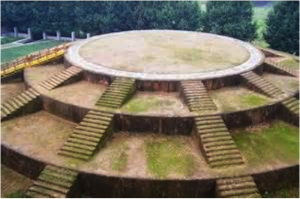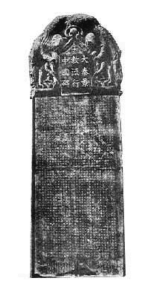“There was a certain disciple at Damascus names Ananias and to him
the Lord said in a vision, ‘Ananias.’ And he said, ‘Here I am, Lord.’” Acts 9:10
I preached about Ananias this past weekend. I went to the Bible Dictionary in my library to see if it offered any insight about Ananias, and read the following: “a devout man according to the law who befriended Saul of Tarsus immediately after his conversion and conveyed Christ’s commission to him.” Really? I mean, seriously? Ananias risked his life to go to Saul! His motley band had come “breathing threats and murder” to Damascus to wreak havoc on the church there, to chain up the believers, to drag them back 150 miles to Jerusalem so that they could be unjustly charged and then executed.
There are many things I love about this man, but it all starts in the heart. I love that he said, “Here I am, Lord.” I love that he was available. I love that he was ready to obey. I love that the words of the prophet Isaiah when he was called by God to go and preach to stubborn Israel were on his lips. Beloved, this was no wimpy attempt at friendship evangelism. This was nothing less than raw courage.
Whether we realize it or not, the courage of this one man not only played a significant role in the life of Saul of Tarsus; through Saul-turned-Paul-the-Apostle he has had an affect on us all. Think about it: no Ananias, no Paul? So who was Ananias that I would make such a statement?
Actually he only appears in this one passage, a total of ten verses of scripture. He gets no flowery introduction. He carries no impressive title. We don’t know if he ever preached to a crowd of 50, 000, or even a “crowd” of 50. He is not a great Apostle, or Pastor. He does not even appear to be an elder or a deacon, though it is quite possible he at least had a “home group”! All we really know is that he was a “certain disciple”. In other words, he was just like most of us. Or to put it in another way, we don’t have any excuses for not being like him!
To make matters worse, even our Bible scholars and teachers seem to miss the point. This passage says nothing about Ananias “befriending” Saul. They simply want to make Ananias after their own image, rather than falling under a deep conviction because we have embraced such a benign and insipid definition of what it means to truly believe. We think being meek means being weak, when the same Moses who was said to be the meekest man on earth (Num 12:3) returned time and time again to Pharoah’s court to castigate him and demand him to “let my people go!”
How could someone who risked his life to come to a man who, with his posse, had one thing in mind– to beat and bind in chains the Christians of Damascus, that he might “punish them…and compel them to blaspheme” “persecut[ing] them to the death” (Acts 26:11; 22:4)–be portrayed as having won Paul over by befriending him? Seriously, do we really think he brought a box of chocolates with him?!
Ananias did not have a box of chocolates. I’ll tell you what else he didn’t have. He didn’t have a Bible (cause there was no Bible). He didn’t have a Bible school certficate. He had not attended Bill Johnson’s school of supernatural ministry. He probably had never met an apostle, his “church” almost certainly did not have a building, and most likely he didn’t even have a “pastor”. Why, their church could not have been more than just a few years old (Saul was saved within 4 years of the resurrection). So what is it about this small group of Christians 150 miles away from Jerusalem that compelled Saul to even want to go there?
Let me quote from another person who impresses me as having done a lot with a little. In this I mean Daniel. A captive, 16 years or so, torn from his culture, his roots, his relationships, living in an environment hostile to his childhood faith with the only support system being three other teenagers like himself. And yet, we know the “rest of the story”. He said:
“But the people who know their God shall be strong, and carry out great exploits.” Dan 11:32
While we should be hugely grateful for the Bible, our Bill Johnson’s, the books, and seminars, and buildings and our Bible schools, these things are not a substitute to knowing God, they are supposed to be a support. The point to know Him. People who know Him are strong, and do exploits. They are not fearful, but fearless in the face of opposition. They know the Lord is with them. They know that they are always led in triumphal procession in Christ.
The other part of the Bible Dictionary quote which disturbs me is that Ananias “conveyed Christ’s commission to him”. Is that really what happened? No. In fact, Ananias entered the house of collaborating Judas and the guards armed with their instruments for inflicting pain and suffering and walked right up to a prostrate, praying Saul, laid his hands upon him whereupon he was immediately healed of blindness, then prayed for him for the Baptism of the Holy Spirit. At which point, “convey Christ’s commission,” is a pretty sad description of the truth, which is that Ananias accurately and thoroughly prophesied Saul’s destiny, that he was a chosen instrument, called to be both a minister and a witness, of the Lord to Gentiles, kings, and the children of Israel, and that he would:
“know his will, and see the Just One, and hear the voice of His mouth”
and,
“open their eyes, in order to turn them from darkness to light, and from the power of Satan to God, that they may receive forgiveness of sins and an inheritance among those who are sanctified by faith in Me.” (Acts 9:15-18; 22:14-15; 26:16-18)
Ananias was one of the disciples in the fledgling Damascus church. While they did not have much, what they did have is an example and a challenge to us all. Consider some of the things that we see in these verses about Ananias:
• He experienced an open vision of the Lord.
• His ears were tuned to the voice of the Lord.
• He knew the importance of the fundamental doctrine of laying on of hands.
• He exercised the spiritual gift of praying for the sick, even for blindess.
• He knew how to immediately lead Saul into the Baptism of the Holy Spirit.
• He prophesied boldly and accurately of Saul’s calling and destiny.
While the message of his boldness, his sensitivity to the things of the Spirit, and even his ability to exercise the spiritual gifts are impressive, there is one last thing that Ananias said which impresses me as much or more than the others. You see, despite having “heard from many about this man, how much harm he has done to Your saints,” knowing that he himself was a target of Saul’s vicious plots to destroy them, when Ananias sees his “enemy” the first words out of his mouth were “Brother Saul.” This is more than a simple gesture of kindness. That he calls him “brother” is itself a declaration of faith, and shows that he harbored no ill-will towards the man who had personally been responsible for the death and destruction of many just like himself. Ananias reveals in these words that he practiced what he professed. He not only DID the work, he did it in the love of Christ.
If I am Saul at that moment, more than my physical eyes are being opened. This guy knows that I have come here to kill, and yet he has reached out to me with tenderness. He has offered me forgiveness. He has accepted me without condition, and made me like one of his own household.
No Ananias, no Paul? Beloved, we do not have to be someone famous. We are not all called to stand before crowds. In the church, there are not many who are called to be Pastors, or Elders, even Deacons. But we can all be disciples. Maybe the only thing that is left is to be described with the only term that Ananias is introduced in this passage. You see, he was not only a disciple. He was certain. He knew his God.




